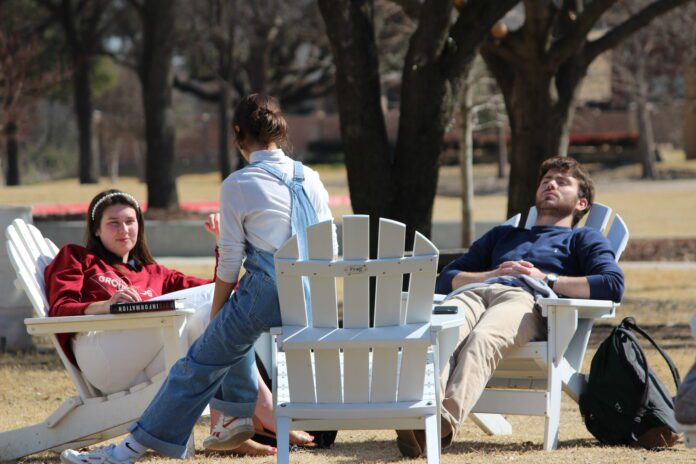
The gift of conversation at UD
Several weeks ago, the University of Dallas hosted a panel about free speech and human dignity. Everyone easily agreed that freedom of speech does not mean freedom to say whatever you want about anything or anyone. However, there appeared to be very little progress made as to what free speech actually does entail and specifically how it should be upheld at the university.
The gift of speech is one which comes with responsibility. Using speech freely is the same as using it well. Words are not meant to be used to speak profanity or to slander and demean others. There should always remain a basic respect for the dignity of the other as you are in dialogue with them.
I believe this is all true, but the panel brought to my attention how easy it is to talk past one another using statements like these and never get to the heart of the issue: What does productive dialogue at UD actually look like?
Conversation at UD comes with specific tasks and responsibilities. We are a Catholic institution committed to the study of the liberal arts, and this is not a fact which can simply be set aside. It is relevant in every conversation that takes place on campus.
This does not at all mean you must be Catholic or have been classically educated your whole life in order to come here and have a valuable place in the community. But it does mean that in coming here you have a responsibility to engage in the discovery of the rich tradition upon which the University stands.
The Core is designed to give us a deep common language so that in arguments we can draw on pertinent philosophical ideas and literary examples, rooting our disagreements in a shared community and hopefully giving way to the possibility of arriving at the truth together.
Therefore, in order to engage in free speech with each other at UD, there first exists a task of deep self-reflection: Am I genuinely seeking the truth, or am I trying to win an argument? Am I genuinely seeking a virtuous life, or am I simply trying to justify the way that I live?
Have I read all of the books in the Core? Do I approach my education as a source of freedom, and not as some arbitrary enslavement? Do I believe that I have things to learn from other people, or do I discount other people’s thoughts on the basis of a first impression?
At the panel, it was suggested repeatedly that you should always be ready to apologize for offending another person you may be in conversation with, and you should try to account for any way your words could be taken as offensive before you say them.
However, this mentality will only lead to fruitless and meaningless conversation. It is necessary to engage in dialogue with a certain amount of trust that both you and the person you are speaking with are simply after the truth. Constructive discourse is in a way very impersonal and should not include personal attacks or looking for ways to victimize yourself. The truth is often offensive, but that does not make it untrue nor not worth pursuing.
At the same time, dialogue which encounters the truth should be ultimately transformative, and thus deeply personal. When we are able to successfully get outside of our own selfish motives to vigorously seek after what is true about the world and about ourselves, it draws wonder from our own hearts and the hearts of those we are in dialogue with, making null the concern of being offended.
The panel concluded with the suggestion that UD is the only university in the nation in which a conversation about free speech, such as the one we had, could take place. UD is unique in that our mission is both deeply rooted in the tradition designed to give our discourse a greater freedom and also in that we do not blindly take for granted Church teaching.
Here, we are encouraged to think alongside the philosophers and theologians and novelists with whom we probably will end up disagreeing, because we respect them as fellow seekers of truth and desire to understand their thought.
Thus, the task to engage in truly free discourse with one another is able to be pursued perhaps most fully at UD. This leaves us with an urgent responsibility to be conscious of what we have been given, and how we are to learn from one another in order to really live up to our mission as a school.